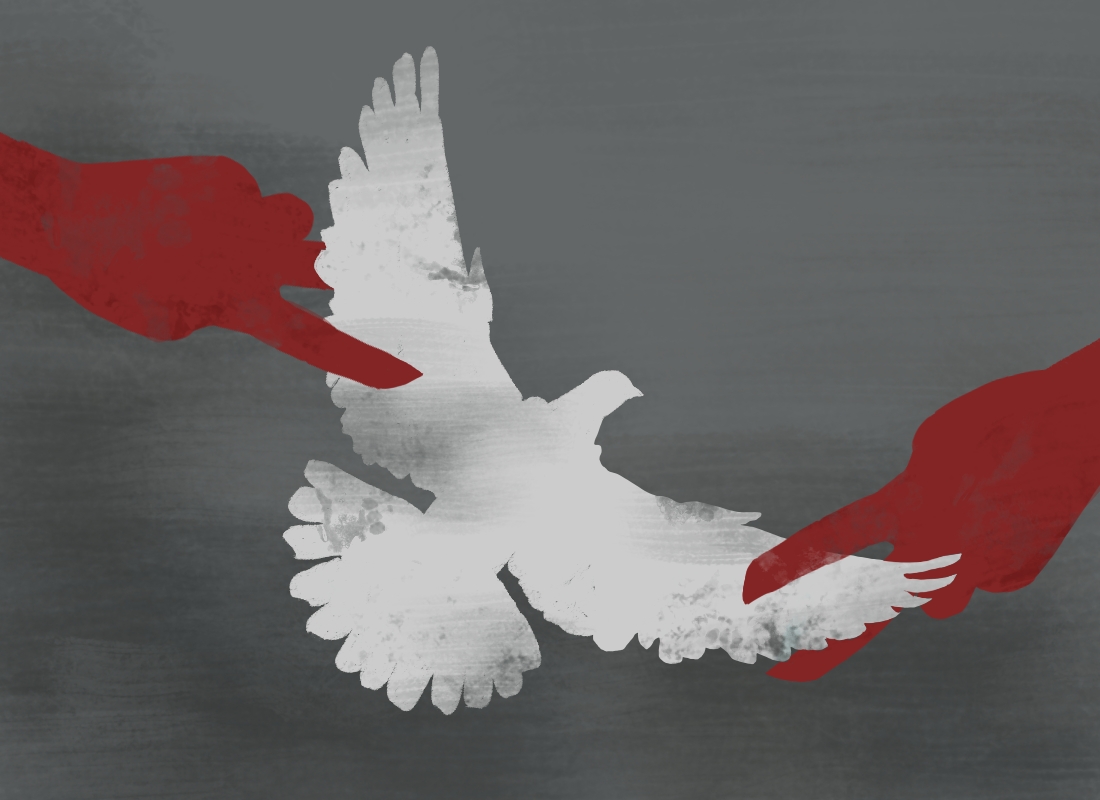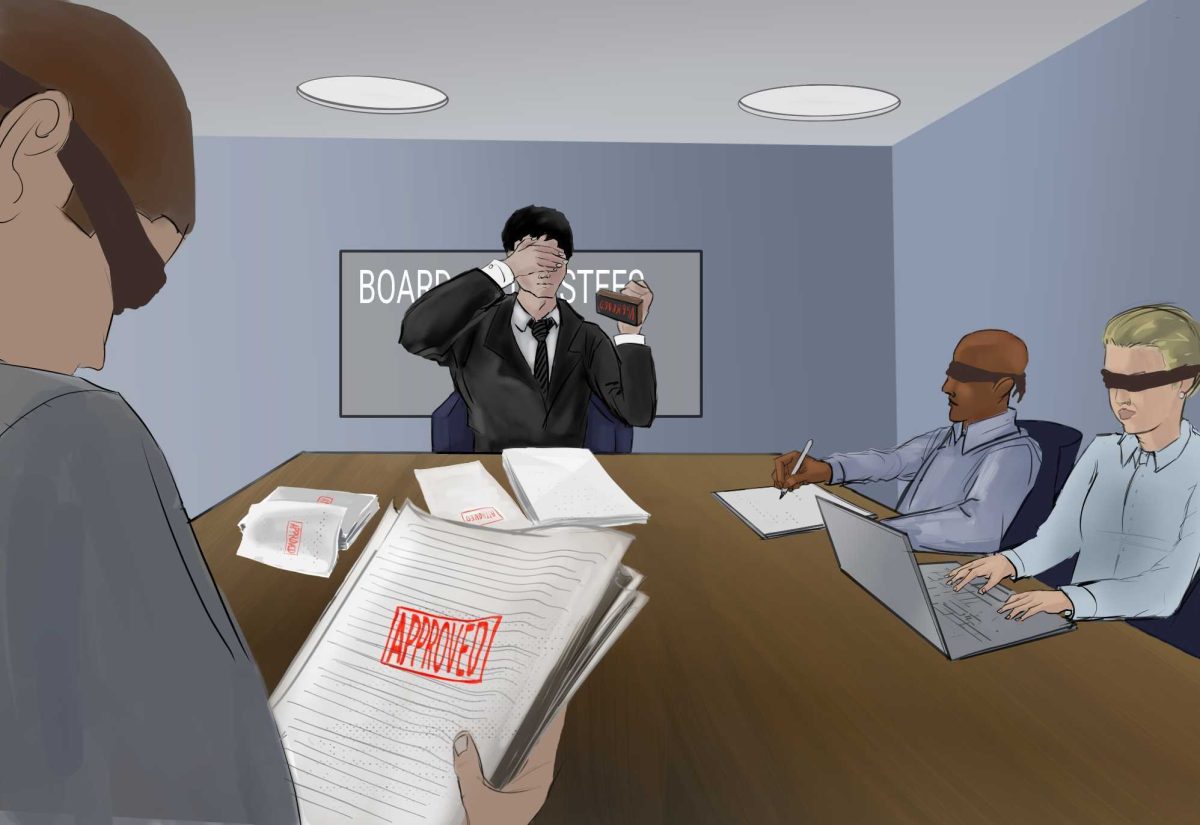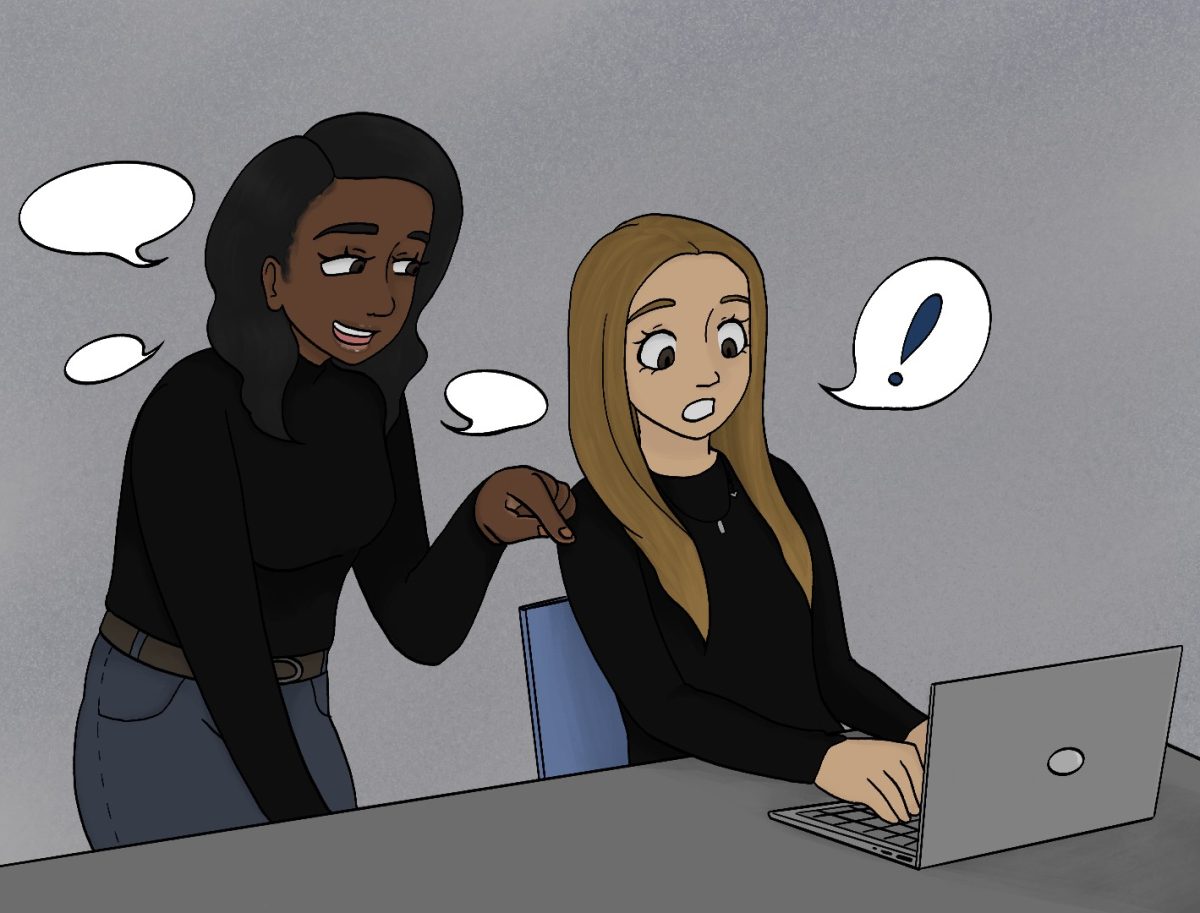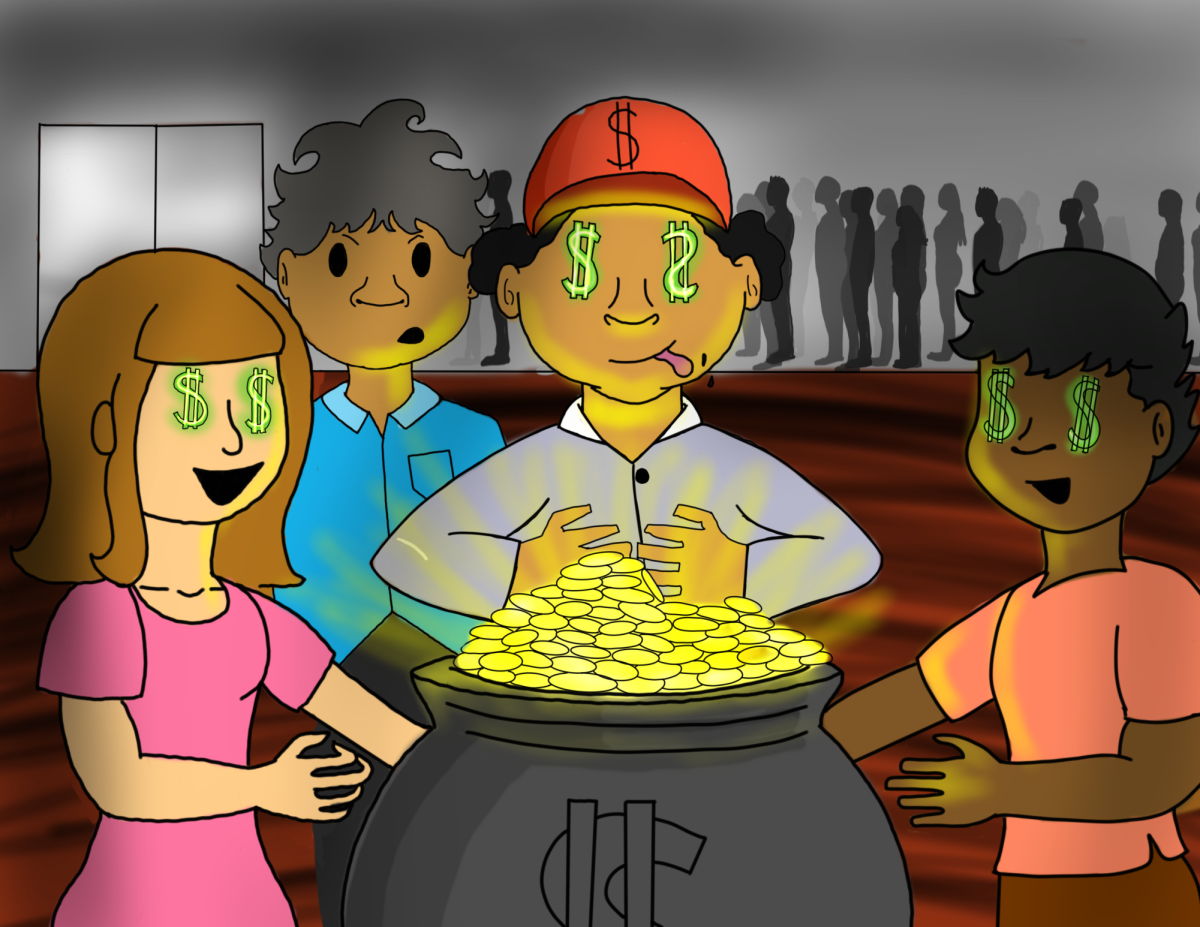Look at you, sitting there and reading this paper, all high and mighty, with your nose in the air, quickly glancing over these articles.
Sure, you stop to read the police beat to see who was illegally drinking or smoking or sexing on campus, and you read a bit of the article about getting a free STD test.
But after, this paper becomes birdcage liner.
All that anguish, wasted. All that effort, pooped on. All the hard work embedded in the words of the Union and you never even realize it.
And truthfully, neither did I, until recently.
I decided to become a staff writer this semester after uncountable times as the Web editor.
With my digital domain no longer to look after, I was looking forward to a sunny future of exciting journalism writing.
It’s been a month since, and I hate the universe a little bit more.
And I have to put the blame on square on you. You, and other sources. Sometimes it takes a lot of effort to pry information from a source.
Even investigating an innocent and straightforward article can sometimes feel like we’re asking a source about their sexual relations with a cactus.
Reporters get used to hearing the “Sorry, I can’t talk about that right now,” or “I don’t do interviews,” and the classic “No comment.”
And then there’s the heartbreak of leaving a message for the source and never hearing back from them.
We journalists are the perpetual love-starved teen by the phone, anticipating that special someone to call.
A couple of things can be learned from this journalistic struggle. I discovered this from one of my first stories this semester.
For issue two I did a feature on breaking into the video game profession, a story soon to be collected into one of the 24 volumes of my greatest articles.
The original intent behind the article was simple: interview several video game industry professionals and find out what advice they would give students who want to pursue video games as a profession.
Now I know what the “A” in EA games stands for. And the other video game companies weren’t too helpful, either.
I never thought such a simple thing as gathering educational advice would be so difficult. I felt I was stuck and couldn’t do the story.
But reporters cannot play the victim. They have the all-mighty Deadline God to appease, and difficult sources are not an excuse for a blank spot in the paper.
Suddenly I got a smack of sense: El Camino has a 3D animation class, perhaps with people with video game industry knowledge.
One piece of genius later, I had produced an article with several sources I didn’t even need to leave campus to get.
If a source is unavailable, reporters can’t whine that we hit a dead-end; we have to figure out how tall a pole we need to launch ourselves over the wall.
It is easy for a person to feel there’s no way they can help themselves out of a crappy situation.
We’re natural drama queens. Even more so if repeated attempts equal failure.
But there are ways around obstacles. There are other sources to contact, other methods to make it work, and a solution to be found after enough pursuing.
So listen up, sources: even though your tuff love of withholding information may teach us to be persistent in life, cut us some slack, will ya? We’re just doing our journalistic jobs.
Now, exactly what is the nature of your relationship with that cactus?








